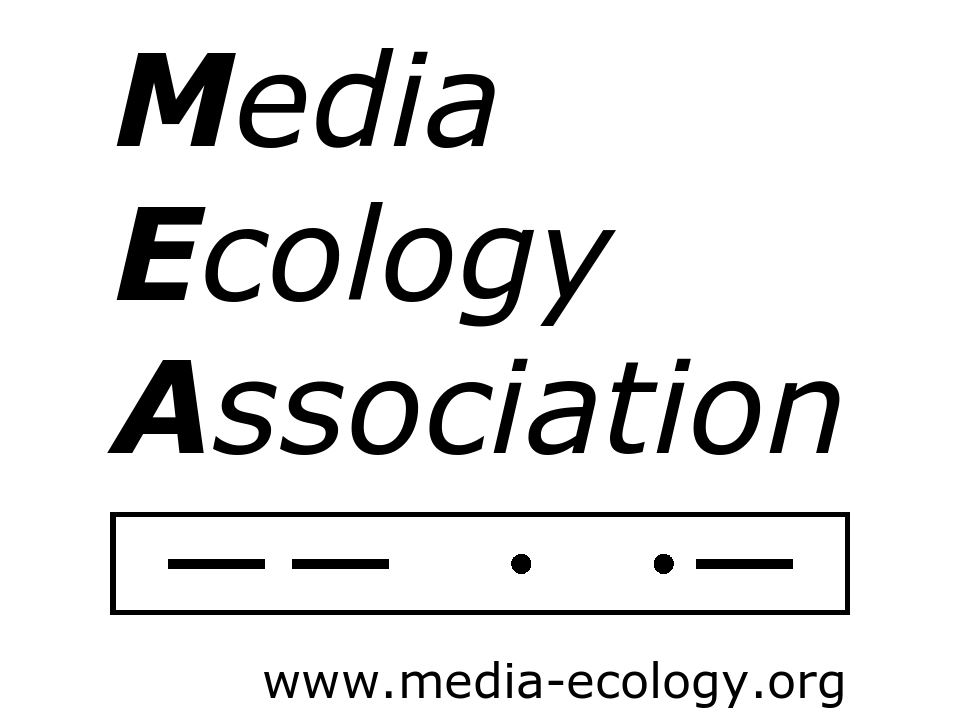The Official Newsletter for the Media Ecology Association
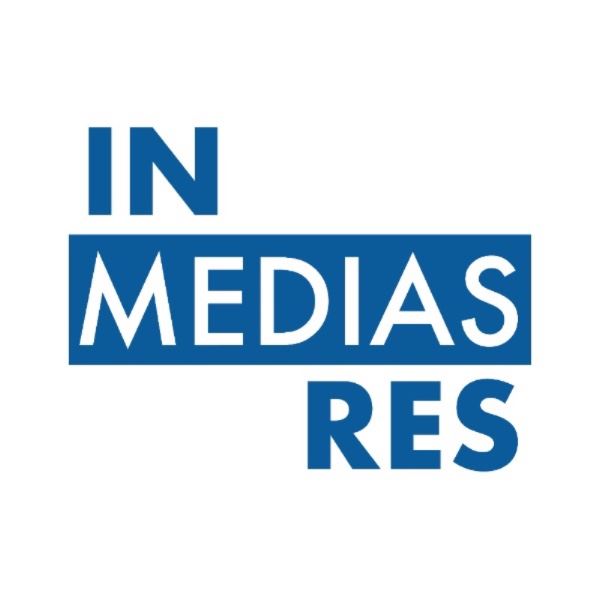

March is Women’s History Month in the United States — check out these media ecological works written by women:
The Printing Press as an Agent of Change (1980) - Elizabeth Eisenstein
Freedom and Culture (1959) - Dorothy Lee
On Photography (1977) - Susan Sontag
Philosophy in a New Key (1941) - Susanne K. Langer
Sexual Personae (1990) - Camille Paglia
Proust and the Squid (2000) - Maryanne Wolf
Alone Together (2011) - Sherry Turkle
Towards a Science of Media Ecology: The Formation of Integrated Conceptual Paradigms for the Study of Human Communication Systems (1973) - Christine Nystrom
Women in Media Ecology — Some Current Members’ Work:
Catherine Adams, Terrie Lynn Thompson, Researching a Posthuman World: Interviews with Digital Objects (2016).
Rachel Armamentos, “Technologies of Narcissism: The Printing Press to Facebook” (2018).
Carolin Aronis, “Communication as Travel: The Genre of Letters to the Dead in Public Media” (2019).
Susan B. Barnes, Cyberspace: Creating Paradoxes for the Ecology of Self (1996).
Eva Berger, “Recapitulation, Medical Imaging Technologies and Media of Communication: The Medium is the Message” (2010).
Jody Berland, Virtual Menageries: Animals as Mediators in Network Cultures (2019).
Bernadette Bowen, Poetry: Selfish Friend Request, Sent; Settling in White America; Westminster Lane (2019).
Adriana Braga, “Mind as Medium: Jung, McLuhan and the Archetype” (2016).
Margaret Cassidy, Children, Media, and American History: Printed Poison, Pernicious Stuff, and Other Terrible Temptations (2018).
Susan Drucker, “Reflections of a Media Ecology Flâneuse: On Mediated Urban Spaces and Places” (2018).
Julia Hildebrand and Mimi Sheller, “Media Ecologies of Autonomous Automobility: Gendered and Racial Dimensions of Future Concept Cars” (2018).
Elaine Kahn, Been Hoping We Might Meet Again: The Letters of Pierre Elliott Trudeau and Marshall McLuhan (2019).
Adeena Karasick, Checking In (2018).
Jaqueline McLeod Rogers; Catherine G Taylor; Tracy Whalen, Finding McLuhan: The Mind / The Man / The Message (2015).
Valerie V. Peterson, “Birth Control: An Extension of ‘Man’” (2010).
Laura Trujillo-Liñán, “Charles Taylor’s Critique of Technopoly” (2019).
Encomium for Christine Nystrom
Provided by Lance Strate
Christine Nystrom remains an enigmatic figure for those who never had the chance to meet and get to know her. She very deliberately avoided the spotlight, despised public speaking, and left behind little in the way of audiovisual recordings. Her publications were few and far between, although anyone who happened to come across one of her essays, for example, “Literacy as Deviance” (published in ETC: A Review of General Semantics, Vol. 44, No. 2, 1987), would quickly realize that she was a gifted writer.
Her doctoral dissertation, Towards a Science of Media Ecology: The Formulation of Integrated Conceptual Paradigms for the Study of Human Communication Systems, completed in 1973, represents the first major treatise on media ecology as a field. In quick succession, she went from being a student of Neil Postman and Terrence P. Moran to being their colleague in the Media Ecology Program at New York University, and from there to being the intellectual leader of the program. Her approach was highly organized and structured, yielding a set of generalizations and hypotheses about media and communication (these took the form of handouts to her students).
Together with her colleagues, Nystrom believed that the media ecology perspective could be conveyed in a clear and logical manner, which is to say that it need not be conveyed only in the unique manner of Marshall McLuhan or Harold Innis. And while Postman’s preference was for using media ecology as a tool for addressing matters of social significance and cultural concern, Nystrom’s work was devoted to systematizing media ecology, bringing the ideas and insights together in a logical and orderly manner, for the benefit of students and researchers. Her emphasis was less on the technological side of media ecology, more on language, symbolic form, relational communication, systems, and culture.
Her influence on the field was to a large extent interpersonal, as a teacher, mentor, and editor. She was tough on graduate students, strict in her expectations, demanding excellence or at the very least competence, and on more than one occasion leaving a student in tears. But she was also willing to get down to the detail work of editing graduate students’ writing (there were said to be occasions where she even did some of their writing for them). Chris was my dissertation adviser, and I credit her with teaching me how to be a lucid writer (understanding the linear bias of the medium), and with how to be a true scholar.
Working with students and with colleagues, she was an editor, and often an unsung collaborator. Nystrom made significant contributions to Postman’s books from the late 70s on, and for many years, they taught their courses together. It didn’t matter which one was listed as the official instructor. Either way, they would work together as a team. Their personal styles were altogether different, but they complemented each other perfectly. You can read her moving tribute to Neil in the memorial issue of Explorations in Media Ecology published in 2006 (Vol. 5, No. 1).
We often joked about the three professors who made up the old Media Ecology Program, that Neil Postman was the rabbi, Terry Moran was the priest, and that Chris Nystrom was the minister. And she was, in many ways, very Protestant in her sensibility, in contrast to her colleagues. But she was also the most religious of the three, significantly in ways that were purely personal and life-affirming. She was also amazingly imaginative, in love with the enchanted worlds of myth and legend.We first bonded over our mutual interest in Tolkien, and his hobbits remained a touchstone when we met for the last time.
Chris never had children of her own, but at the first MEA convention in 2000, she delighted in seeing herself as the mother of media ecology, the maternal archetype of our pantheon. And when I saw her for the last time, knowing that her time was fast approaching, she said to me that she hoped this thing called media ecology meant something and will mean something in the future. I hope that I was able to provide some modicum of comfort in assuring her that it did and will, and that the Media Ecology Association will carry on that work into the future, as it has, and as it will.
Chris was dissatisfied with her dissertation, and never tried to turn it into a book, and at least by the time I arrived at NYU in 1980, was not using it as a model that doctoral students could follow, was not sharing it with her students, and actually discouraged us from reading it. She eventually began work on other book projects, but left them unfinished and unknown to all but the students she shared them with. We all urged her to get her work and her thoughts out to a wider audience. But she was not the kind of person who could be persuaded to do something that she didn’t want to do.
Fortunately, she will soon be a little mysterious to many of you, as the first of two volumes of her writings are in production now and will be published later this year by Peter Lang in my Understanding Media Ecology book series (you may have noticed the probe taken from this upcoming book that was included in the last 2019 issue of Explorations in Media Ecology, Vol. 18, No. 4). Two of her former students, Carolyn Wiebe and Susan Maushart, are the editors of these collections, and the tentative title of the first is, The Genes of Culture: Towards a Theory of Symbols, Meaning and Media, by Christine L. Nystrom. This represents an important milestone for media ecology, and on a personal note, for all involved, it is nothing less than a labor of love.
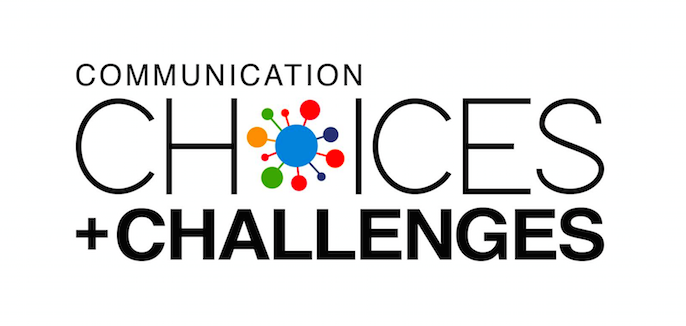
The Twenty-First Annual Convention of the Media Ecology Association
Communication Choices and Challenges
June 18-21, 2020
Adelphi University, Garden City, New York
The MEA is closely monitoring the COVID-19 situation, particularly in regard to travel restrictions and recommendations. The MEA will follow guidelines issued by public health authorities, New York State, and U.S. Department of Health and Human Services. Updates will follow in the next weeks.
Media Ecology is a discipline whose history, perspectives, and scholarly interests incorporate a broad array of academic and professional disciplines focusing on “the study of complex communication systems as environments” (Christine Nystrom, 1973). Every year, the MEA convention provides a unique opportunity for academics and professionals to come together in a relaxed and collegial environment that encourages conversation and creativity.
The theme of the 2020 convention is “Communication Choices and Challenges.” In every act of communication, people make choices. We choose where, when, and how to express ourselves or locate and use information. We choose the medium that seems best suited to the task: are we trying to reach the largest possible audience, get the word out quickly, or ensure that our message reaches future generations? Do we wish to convey a deep sense of intimacy, empathy, authority, or cool distance? Are we looking for information from a wide variety of perspectives, confirmation of what we already believe, or the deepest possible exploration of an issue?
Featured speakers at the 2020 convention include Jay Rosen, press critic and author of PressThink.org, What Are Journalists For?, and countless articles and essays on American journalism; and Maryanne Wolf,international advocate for children and literacy and author of Reader, Come Home: The Reading Brain in a Digital World, Tales of Literacy for the 21st Century, and Dyslexia, Fluency, and the Brain.
Presentations will address choices and challenges related to:
- the construction of identity and the presentation of self on social media
- the use of media to establish and/or maintain relationships (among individuals, in families, between political leaders and their constituents, in between celebrities and fans, etc.)
- representation and storytelling by producers of news and entertainment
- promotional and strategic communication—the choices involved in designing strategic messaging, as well as the impact on audience attitudes, decisions, and behaviors
- the erosion or illusion of choice due to the concentration of media ownership
- the 2020 U.S. presidential election, which will take place just months after the convention
Women in Media Ecology - Coffee at the 2020 MEA Convention

Come join us for an informal networking event with, for, and about women in the field of media ecology at this year’s MEA convention. Depending on interest, we will discuss such topics as research, teaching, career advancement, academic community, work-life balance, family etc. Coffee sponsored by the Media Ecology Association.
Organizers: Carolin Aronis, Julia M. Hildebrand
Women and Media Ecologies - Panel at the 2020 MEA Convention
In alignment with the convention theme, this panel outlines and discusses some of the communication choices and challenges related to women in contemporary media environments. As such, the research presented here focuses specifically on current and emerging media forms and communication processes and how they extend, reverse, retrieve, and obsolesce gendered practices, agencies, bodies, and spaces. Concretely, the participating scholars cover such timely topics as #MeToo, sex toys, first-person shooter games, and drones to employ, assess, and expand media ecology.
Gender and Media Ecology Panel - NCA 2019
This session featured critical inquiries into the topics of media and gender. Drawing from texts, models, and probes relevant to media ecology, the five presentations cover such topics as 1) sexual identity and the human body in digital environments, 2) women’s work in digital economies, 3) gender-specific performances on social media platforms, and 5) the exclusion of women in canonical texts of media ecology.
This panel revisits and expands key ideas in the study of media as environments and environments as media by discussing past, present, and emerging questions related to gendered bodies and environments. Ultimately, the goal is to explore what a feminist media ecology can contribute to critical media studies.
MEA @ NCA 2020

The Call for Papers for MEA at the National Communication Association is available — submissions are due March 25. The convention, “Communication at the Crossroads,” will be held in Indianapolis, IN from November 19–22, 2020.
The 2020 NCA convention theme, “Communication at the Crossroads,” suggests an emphasis on intra-disciplinary collaboration and exploration. Media ecology is situated to explore communication in this way as a metadiscipline that studies the ways in which human action shapes and is shaped by our media environments. The term “media” is broadly construed in the field and includes but is not limited to communication, technology, technique, orality and literacy, the arts, economics, education, ethics, etc. Thus, media ecology explores the conditions of human experience made possible by the complex patterns of interaction within and among our symbolic-material environments. These complex patterns of interaction represent a crossroads of sorts in an environment Neil Postman characterized by the phrase “information glut.”
The theme of the 2020 Media Ecology Association convention is “Communication Choices and Challenges.” In every act of communication, people make choices. We choose where, when, and how to express ourselves or locate and use information. We choose the medium that seems best suited to the task: are we trying to reach the largest possible audience, get the word out quickly, or ensure that our message reaches future generations? Do we wish to convey a deep sense of intimacy, empathy, authority, or cool distance? Are we looking for information from a wide variety of perspectives, confirmation of what we already believe, or the deepest possible exploration of an issue? Answers to these questions, and more, can help us to choose the right path at our contemporary crossroads, and to navigate a safe course through information glut, and many other confounding obstacles beyond.
This call invites you to explore these concerns, emphasizing the historical and intellectual roots of our field, and their relevance to the theme of Communication at the Crossroads. As such, papers and panels that deal with topics related to the theme are encouraged (though not required). Likewise, proposals that link traditionally distinct thinkers or disciplines to media ecology, extend established ideas or concepts, or otherwise advance existing approaches to the field, are also welcomed.
MEA @ ECA 2020

This year’s Eastern Communication Association convention, “Harboring Innovation,” will be held in Baltimore, MD from April 1–5 2020, and features a number of media ecology-related papers and panels. If you are a member presenting media ecological work, please email our Internet Office Carolin Aronis at carolin.aronis@colostate.edu to add your paper/panel to the MEA @ ECA webpage.
MEA @ ICA 2020
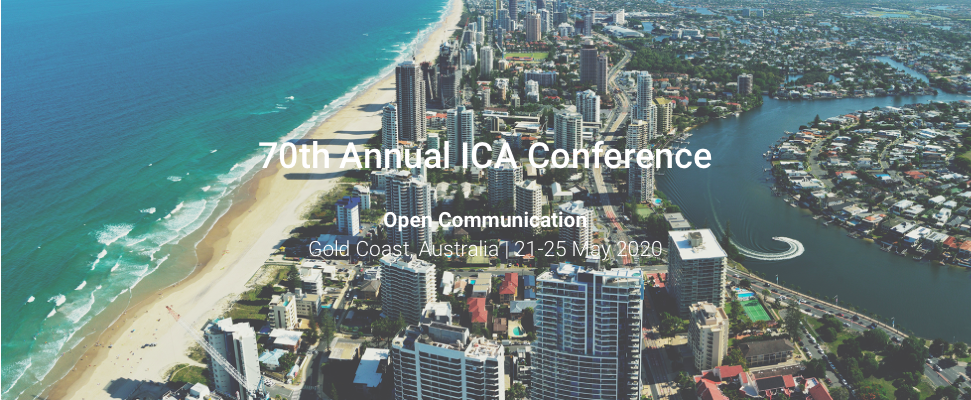
This year’s International Communication Association convention, “Open Communication,” has been converted to a virtual format. Read more details here.
Call for the 2022 Annual Convention Host
The MEA is currently looking for a host for the Twenty-Third Annual Convention of the Media Ecology Association in 2022. If you are interested in hosting, please visit our website and email our Executive Secretary Fernando Gutiérrez at secretary@media-ecology.net.
MEA Membership Renewal Reminder
It is not too late to renew your membership by paying your dues. Volume 19, #1 of Explorations in Media Ecology will be mailed in March, but only to those who have paid their membership dues. Those who don’t renew will lose access to the online version of EME as well as other member benefits.* To renew, please go to http://www.media-ecology.org and then log in using your email ID and password and follow the directions. You may pay online via PayPal or by check made payable to the Media Ecology Association and mailed to our treasurer, Paul Soukup, S.J., at the Communication Department; Santa Clara University; 500 El Camino Real; Santa Clara, CA 95053 USA. For those outside the U.S., you may also pay by Western Union money order sent to psoukup@scu.edu.
Membership will renew at the level from 2019; if you wish to change your membership, please drop Paul Soukup a note. If you wish, you may also register for the convention at the early registration price. If you wish to wait on that, early registration discounts are available until mid-May.
*Please note: The Media Ecology Association Executive Board decided that the newsletter will be available online to all interested readers. However, only members can be featured in the newsletter itself.
Working Group for Increasing Inclusivity
The Media Ecology Association is looking to establish a Working Group for Increasing Inclusivity in the Association.
The first official initiative will take place at the Convention. In a special session, we plan to discuss issues of inclusion and exclusion, share feelings and facts in regard to the relationship of the younger generation with the Association, as well as of women, LGBTQ, people of color, non-English speakers, and other relevant issues that matter to us. In this session we will come up with topics to work on in the coming year, assign interested MEA members and a chair, and will develop a clear working plan. This session, as well as the future Working Group, are open to all MEA members.
If you would like to volunteer and or have some suggestions and inquiries preparing for this session, please send these to board member Carolin Aronis: carolin.aronis@colostate.edu.
All contributions, ideas, shared experiences, and good will are encouraged.
Donate to MEA through AmazonSmile

When you order through AmazonSmile, the AmazonSmile Foundation will donate 0.5% of the purchase price of eligible products to the charitable organization of your choice.
To use it, go to http://smile.amazon.com and sign in as you usually do. Directly under the search bar, you will find a pull-down for supported charities. Search for and select Media Ecology Association.
MEA Member News and Achievements
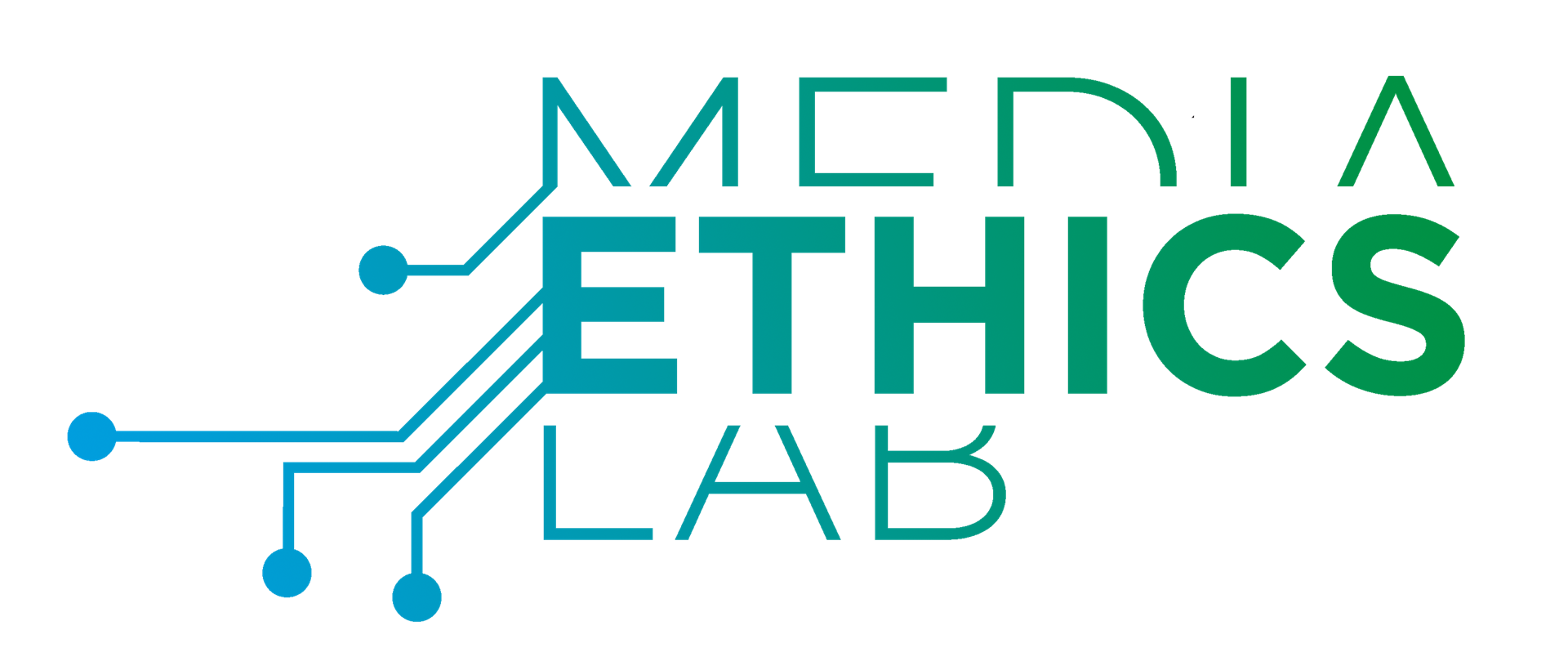
As an extension of a vigorous community building effort by the University of Toronto during the 20th Annual Convention of the MEA (Toronto, 27–30 June 2019), St. Michael’s College in the University of Toronto has just launched the Media Ethics Lab, a research hub that studies the ways that digital media practices and emerging technologies are marked by ethical issues and decisive political, societal and cultural questions. Serving as a focal point for information related to academic programs, research, and public policy initiatives in the field, the Media Ethics Lab fosters open research, integrated learning, and civic engagement to explore the potential that information and communication technologies hold for enacting positive social change. Led by Prof. Paolo Granata, MEA President, the Media Ethics Lab aims to foster the making of an intellectual community that serves as a source of knowledgeable energy and encouragement for future research connections in the field of Media Ecology. If you run an organization, university program or learning community, we want to hear from you. Our minds are open to whatever future project you want to discuss with us, and we look forward to growing our community with MEA members.
http://mediaethics.ca/

MEA member, Yoni Van Den Eede, author of Amor Technologiae: Marshall McLuhan as Philosopher of Technology has recently published The Beauty of Detours: A Batesonian Philosophy of Technology, now available from SUNY Press.
Call for Newsletter Content
To submit news to In Medias Res, the official monthly newsletter of the Media Ecology Association, members can click here.
We are looking for news that is relevant to the members of MEA. This might include member achievements (e.g., journal publications, books, creative works, etc.), awards received, upcoming relevant conferences, recent books that MEA members should be aware of, web content that might interest MEA members, news about upcoming EME issues, calls for submissions, etc.
The deadline for submissions to be included in the next month’s newsletter is the 28th of every month at 5pm EST.
